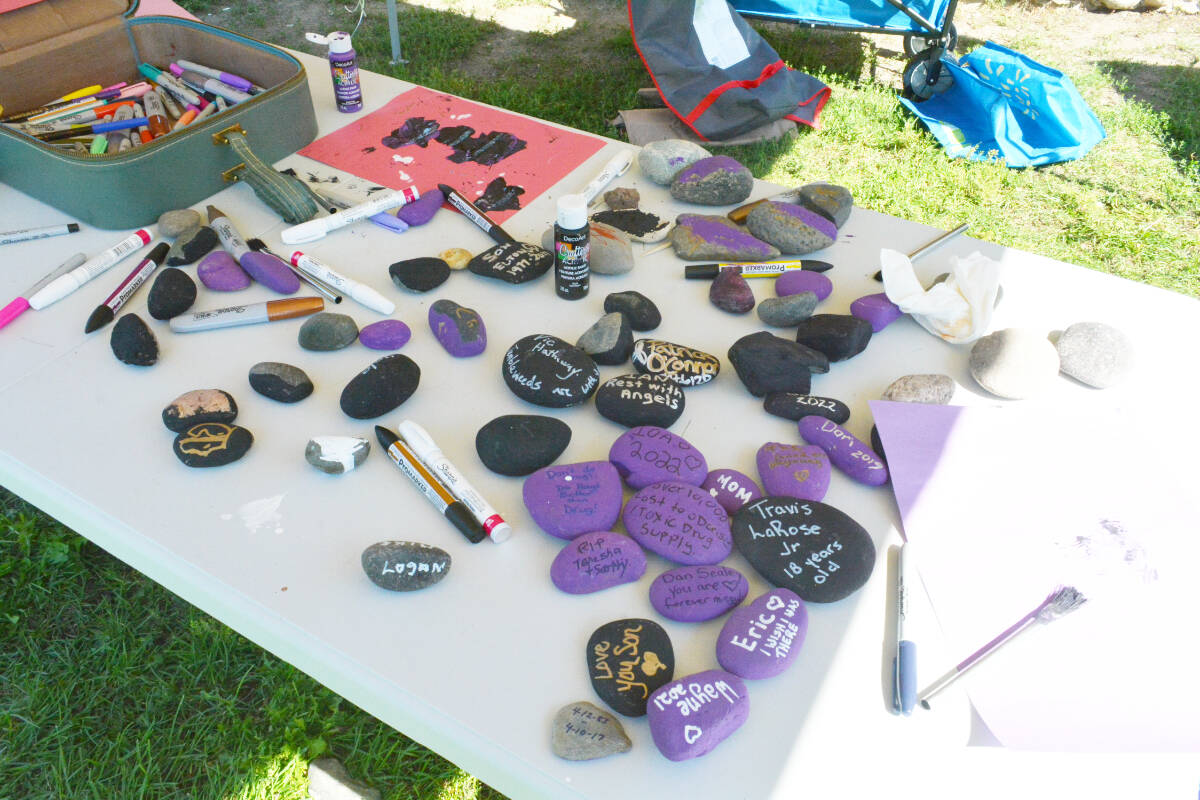Nearly 13 people died every two days from B.C.’s toxic drug supply in February and March, the BC Coroners Service announced Tuesday (April 18).
A total of 596 lives were claimed to unregulated, or street-level, drugs in the first three months of the year. That’s compared to the same time period in 2022, when B.C. recorded 599 deaths – the worst year in the province’s history.
“Unregulated drug toxicity continues to be the leading cause of unnatural death in British Columbia, accounting for more deaths than homicides, suicides, motor vehicle incidents, drownings and fire-related deaths combined,” a statement from the Coroners Service said.
Chief coroner Lisa Lapointe called the crisis one of “incomprehensible scale,” pointing to April 14, when the province marked the 7th anniversary of its first-ever, and now longest, public-health emergency.
READ MORE: What to know about B.C. decriminalizing possession of drugs for personal use
B.C. set grim records in March for the most drug poisoning calls in one day, the highest 30-day average of overdose calls and the most consecutive days where paramedics attended 100 or more poisonings.
The province is also on pace to set a new record for poisoning calls in a year and match its annual record for the most naloxone doses administered to reverse the effects of opioids.
The latest details comes just two months into province-wide decriminalization for personal possession of small amounts, or 2.5 grams, of drugs, which started on Jan. 31.
B.C. leaders had asked and received the exemption from the federal government in May 2022. The federal exemption will last three years and covers illicit versions of opioids such as heroin, morphine and fentanyl, as well as crack and powder cocaine, methamphetamine and MDMA (ecstasy).
Mental Health and Addictions Minister Jennifer Whiteside told Black Press Media that the province is being “very, very careful” in evaluating the effectiveness of the program.
“We are just two months into decriminalization,” Whiteside said, when asked whether it is too early to make an assessment. “Of course, evaluation is underway with respect to how that program is rolling and we are watching carefully.”
Whiteside said the toxic drug supply is getting more complicated. “It has poisoned in new and various ways that pose challenges for frontline providers,” she said. This why government has made what Whiteside called an “unprecedented” billion dollar investment across the entire continuum of the crisis, she said.
“We are ramping up prescribed safer supply to make safer drugs available to more people,” she said. “We are working to separate people from the toxic drug crisis…and working across treatment and recovery intervention as well.”
She added later that the provincial government is continuing to support physicians and nurses, who are helping patients access safer supplies, she added.
“We are adding prescribers to the roster every month and an evaluation is underway with respect to how our prescribed safe supply program is working,” she said. “We are doing more and are further ahead than any other jurisdiction in the country. In this regard and I understand that we need to move faster and reach more people and that work is underway.”

